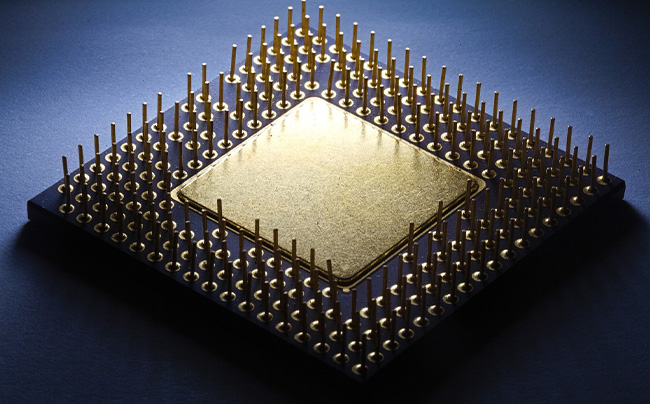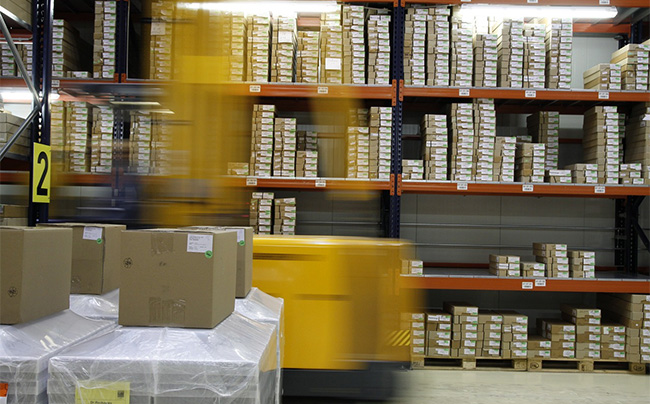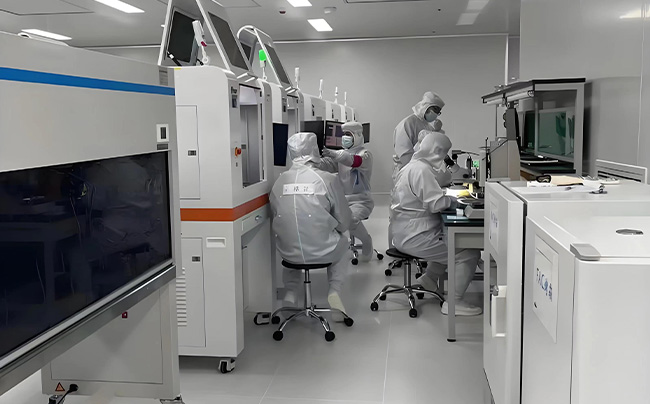Reduce operation and maintenance costs and improve business agility.

●Customers propose product concepts and specific product requirements
●Determine the product's function, appearance, cost, quantity, and delivery time
●Confirm market demand and technical feasibility

●OEM customization provides quotation based on demand (material/processing/mold cost/transportation cost), etc.
●The two parties reach an agreement on price, payment terms, and delivery time and sign a formal contract agreement

●Carry out product design according to customer needs (industrial design, structural design, circuit design)
●After the design is completed, it is submitted to the customer for review and adjustments are made based on feedback until the needs are met.
●Produce prototype samples for customer evaluation when necessary

●Produce samples according to the finalized design
●Customers test samples to check if they meet quality standards and expected results
●After the sample is approved, both parties determine the parameters and details of mass production

●Continuously optimize production processes and product performance based on market feedback and customer requirements
●Maintain close cooperation with customers and explore new cooperation opportunities

●Provide necessary technical support and after-sales services, such as repairs, replacement of parts, etc.
●Mobile phone user feedback, used to improve subsequent products and services

●After the product is produced, it will be packaged according to customer requirements
●Organize shipment and select appropriate logistics methods to deliver products to the customer's designated delivery point

●Prepare production lines and order required raw materials and components
●Carry out large-scale production while maintaining strict quality control
●Ensure periodic sampling during the production process to ensure stable product quality
Customer consultation: Propose product customization requirements, including functions, performance, appearance, etc.
Preliminary evaluation: Evaluate customer needs and understand whether the customer has existing design plans or technical requirements. If there is an existing design, customize it according to the customer’s existing plan. If not, prepare a design plan after fully understanding the needs.
Demand confirmation: Further communicate with the customer to clarify the detailed specifications and requirements of the product, form a document, and hand it over to the customer for further confirmation of the needs
Team formation: project team of component professional design, engineering, production, quality and other departments.
Solution design: reasonably design customized solutions, including structural design, circuit design, packaging design, etc.
Solution review: organize internal technical review, invite customers to participate, optimize and adjust the solution.
Solution confirmation: submit the optimized design solution to the customer for confirmation, and sign a design contract or cooperation agreement.
Sample production: Arrange the factory to produce samples according to the design plan, and produce them strictly according to the design requirements and quality standards.
Sample testing: Perform functional tests, performance tests, reliability tests, etc. on samples to ensure sample quality.
Customer feedback: Submit samples to customers for trial and evaluation, collect feedback, and optimize and improve products.
1. Raw material inspection: Strictly inspect raw materials to ensure they meet quality standards.
2. Production process monitoring: During the production process, spot check each link to find and solve problems in a timely manner.
3. Finished product inspection: Comprehensively inspect finished products to ensure stable and reliable product quality.
1. Production Plan: According to the order quantity and delivery time, formulate a production plan and arrange resources in each link reasonably.
2. Raw material procurement: Purchase qualified raw materials according to the standards to ensure timely supply.
3. Production Execution: Produce according to the plan and process requirements, strictly control quality, control defective products in time, and report production dynamics to customers regularly.
4. Process monitoring, timely discover and solve problems, ensure production progress and product quality.
Sign a contract with the customer to clarify specifications, quantity, price, delivery time, quality standards, payment methods, etc. to protect the rights and interests of both parties.
1. Quality System: Establish a sound quality system to ensure that product quality meets standards.
2. Quality Inspection: Carry out strict quality inspection on products to ensure stable and reliable product quality.
3. Quality Improvement: Improve product quality based on quality inspection results to improve product quality and customer satisfaction.
1. Customer Communication: Maintain good communication with customers and understand customer needs and feedback in a timely manner.
2. Customer Support: Provide technical support to customers and solve problems encountered by customers during use.
3. Customer Satisfaction: Regularly survey customer satisfaction and continuously improve service quality and product quality based on customer feedback.
1. One-stop logistics solution
According to the delivery cycle and cost, we recommend sea/air/railway and other modes of transportation, and handle customs declaration, insurance and customs clearance at the destination port.
Provide trade terms such as DDP/DAP to reduce the complexity of customer operations.
2. Delivery acceptance
Assist in inspection after the customer signs for the goods and handle quality issues.
Provide product quality assurance (according to the category), regularly visit to collect market feedback, and optimize subsequent orders.
We have integrated factory resources from multiple industries such as machinery, aerospace, satellite communications, automobiles, medical care, artificial intelligence, and drones to build a large and efficient collaborative network. No matter how diverse and complex the needs are, we can respond quickly. For tasks within our capabilities, we will go all out to ensure accurate achievement. If faced with challenges, we will integrate resources from all parties to ensure that the delivery results are of both quality and quantity, and live up to your trust.
1. After-sales support: Provide after-sales service to customers, including product consultation, technical guidance, maintenance services, etc.
2. Customer feedback processing: Timely handle customer feedback and continuously improve product and service quality.
3. Continuous improvement: Based on customer feedback and market demand, continuously optimize product design and production processes to improve product quality and competitiveness.

Customer consultation: Propose product customization requirements, including functions, performance, appearance, etc. Preliminary evaluation: Evaluate customer needs and understand whether the customer has existing design plans or technical requirements. If there is an existing design, customize it according to the customer's existing plan. If not, prepare a design plan after fully understanding the needs. Demand confirmation: Further communicate with the customer to clarify the detailed specifications and requirements of the product, form a document, and hand it over to the customer for further confirmation of the needs

Team formation: project team of component professional design, engineering, production, quality and other departments. Solution design: reasonably design customized solutions, including structural design, circuit design, packaging design, etc. Solution review: organize internal technical review, invite customers to participate, optimize and adjust the solution. Solution confirmation: submit the optimized design solution to the customer for confirmation, and sign a design contract or cooperation agreement.

Sample production: Arrange the factory to produce samples according to the design plan, and produce them strictly according to the design requirements and quality standards. Sample testing: Perform functional tests, performance tests, reliability tests, etc. on samples to ensure sample quality. Customer feedback: Submit samples to customers for trial and evaluation, collect feedback, and optimize and improve products.

Sign a contract with the customer to clarify specifications, quantity, price, delivery time, quality standards, payment methods, etc. to protect the rights and interests of both parties.

1. Customer Communication: Maintain good communication with customers and understand customer needs and feedback in a timely manner. 2. Customer Support: Provide technical support to customers and solve problems encountered by customers during use. 3. Customer Satisfaction: Regularly survey customer satisfaction and continuously improve service quality and product quality based on customer feedback.

1. Quality System: Establish a sound quality system to ensure that product quality meets standards. 2. Quality Inspection: Carry out strict quality inspection on products to ensure stable and reliable product quality. 3. Quality Improvement: Improve product quality based on quality inspection results to improve product quality and customer satisfaction.

1. Raw material inspection: Strictly inspect raw materials to ensure they meet quality standards. 2. Production process monitoring: During the production process, spot check each link to find and solve problems in a timely manner. 3. Finished product inspection: Comprehensively inspect finished products to ensure stable and reliable product quality.

1. Production Plan: According to the order quantity and delivery time, formulate a production plan and arrange resources in each link reasonably. 2. Raw material procurement: Purchase qualified raw materials according to the standards to ensure timely supply. 3. Production Execution: Produce according to the plan and process requirements, strictly control quality, control defective products in time, and report production dynamics to customers regularly. 4. Process monitoring, timely discover and solve problems, ensure production progress and product quality.

1. One-stop logistics solution According to the delivery cycle and cost, we recommend sea/air/railway and other modes of transportation, and handle customs declaration, insurance and customs clearance at the destination port. Provide trade terms such as DDP/DAP to reduce the complexity of customer operations. 2. Delivery acceptance Assist in inspection after the customer signs for the goods and handle quality issues. Provide product quality assurance (according to the category), regularly visit to collect market feedback, and optimize subsequent orders.

1. After-sales support: Provide after-sales service to customers, including product consultation, technical guidance, maintenance services, etc. 2. Customer feedback processing: Timely handle customer feedback and continuously improve product and service quality. 3. Continuous improvement: Based on customer feedback and market demand, continuously optimize product design and production processes to improve product quality and competitiveness.

We have integrated factory resources from multiple industries such as machinery, aerospace, satellite communications, automobiles, medical care, artificial intelligence, and drones to build a large and efficient collaborative network. No matter how diverse and complex the needs are, we can respond quickly. For tasks within our capabilities, we will go all out to ensure accurate achievement. If faced with challenges, we will integrate resources from all parties to ensure that the delivery results are of both quality and quantity, and live up to your trust.